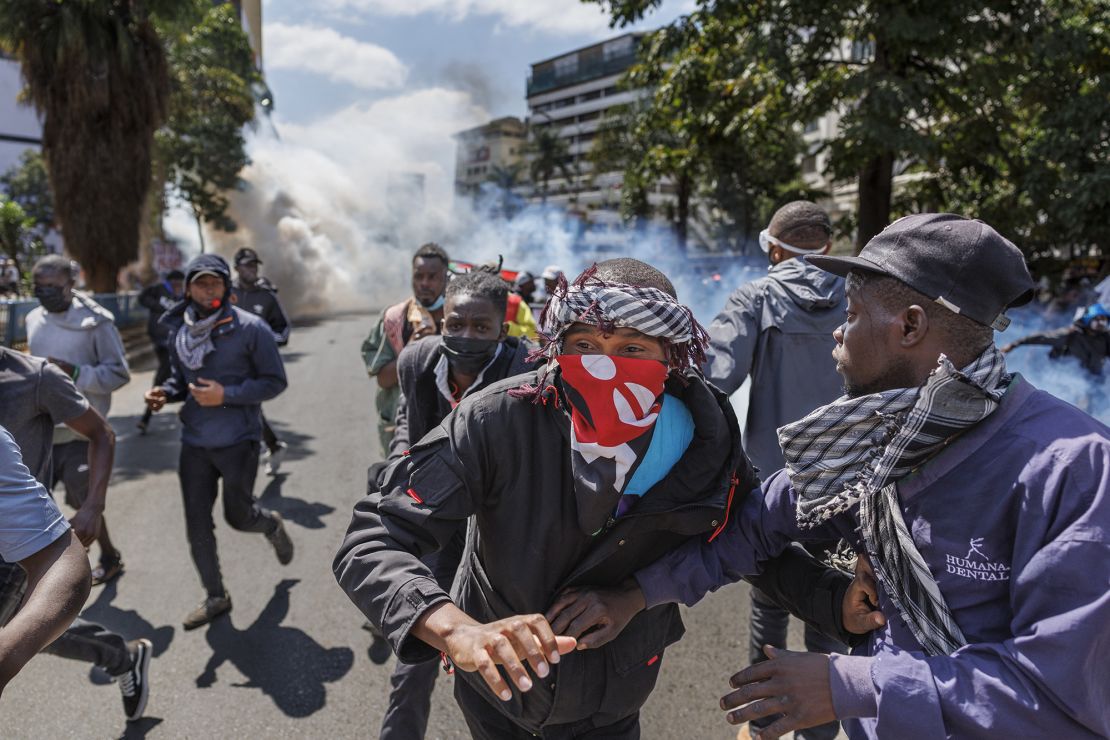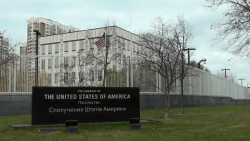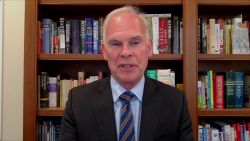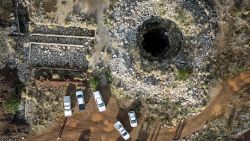Kenyan President William Ruto said Wednesday that he will not sign a controversial finance bill, backing down in the face of mass protests that swept the country and reportedly left at least 23 people dead.
“Having reflected on the continuing conversation regarding the content of the finance bill 2024, and listening keenly to the people of Kenya who have said loudly that they want nothing to do with this Finance Bill 2024, I concede, and therefore I will not sign the 2024 finance bill,” Ruto said during a television address Wednesday.
“The people have spoken,” Ruto said. “Following the passage of the bill, the country experienced widespread expression of dissatisfaction with the bill as passed, regrettably resulting in the loss of life, the destruction of property and desecration of constitutional institutions.”
Protesters in Kenya say they will go ahead with a “One Million People March” on Thursday despite Ruto accepting their key demand of scrapping the bill. A poster shared widely on social media calls on all generations to return to the streets across the country on Thursday and block roads leading to the capital Nairobi.
Some protesters have also called for people to occupy the State House in Nairobi.
US Secretary of State Antony Blinken has spoken with Ruto since the clashes to urge restraint. According to a State Department readout of their call, Blinken “underscored the importance of security forces demonstrating restraint and refraining from violence and encouraged prompt investigations into allegations of human rights abuses.”
Kenya, a nation often praised for its stability, had seen escalating protests over the bill, which the government introduced to rein in public debt.
Last week, the government scrapped some tax increases, including a proposed 16% value-added tax on bread along with taxes on motor vehicles, vegetable oil and mobile money transfers. But the concessions were not enough to quell protests amid the rising cost of living.
On Tuesday they turned deadly when security forces fired teargas and live ammunition at protesters.
Dramatic scenes in the nation’s capital Nairobi saw government buildings set on fire and a ceremonial mace stolen from the parliament in the melee. Kenyan lawmakers were evacuated from the parliament as police went up against protesters, CNN affiliate NTV Kenya reported.

At least 23 people died in the violence, according to Kenya’s Police Reforms Working Group, (PRWG) a civil society organization.
The PRWG alleged in a statement published by Amnesty International Kenya that police targeted young, unarmed protesters outside the parliament, with the violence continuing into the night. They added that “reports show police shot several people in Githurai, Nairobi, one over 40 times — between 10 p.m. and 1 a.m., way after the protest ended.”
This was in contrast to details given by Ruto, who said in his speech that six people died.
“I send my condolences to the families of those who lost their loved ones in this very unfortunate manner,” Ruto added.
“There is need for us as a nation to pick up from here and go into the future,” Ruto said, adding that he would hold an engagement with the young people at the forefront of the protests to hear their ideas and proposals.
The Law Society of Kenya is calling for the resignation of Kenya’s inspector general of police and the Nairobi regional commander over officers allegedly shooting protesters.
“We saw plainclothes policemen shooting protesters as early as 11 a.m. There was a clear directive to kill protesters,” Law Society of Kenya president Faith Odhiambo alleged in an interview with CNN on Wednesday evening. “There was no intent to let the protesters move around.”
The Law Society also said the police “abducted” several prominent social media users connected to the protests, and six people remain missing.
“The reports from those who have been freed is that they were taken blindfolded and handcuffed, and they didn’t know where they were,” she told CNN, after the society secured the release of six people. “Even after they come out, most of them are quite shaken and afraid and want to go into hiding. Our message to the government is that if a country is built on fear, one day people will stop fearing. And that’s what we saw on Tuesday.”
Ruto’s change of heart came as a surprise to some who observed his hardline stance just a day earlier.
During a nationwide address after the parliament was set alight, Ruto said the events on Tuesday were a grave threat to “national security” and that the conversation around the bill had been “hijacked by dangerous people.”
Kenyan analyst Herman Manyora said withdrawing the bill much earlier could have saved the lives lost on Tuesday.
“His announcement should have come earlier. He has done today what he should have done two days ago to avoid what we went through yesterday. It pains me that we had to wait … for us to do what we should have done on Monday … and that’s a general feeling among people,” Manyora told CNN.
CNN’s Catherine Nicholls contributed to this report.





















